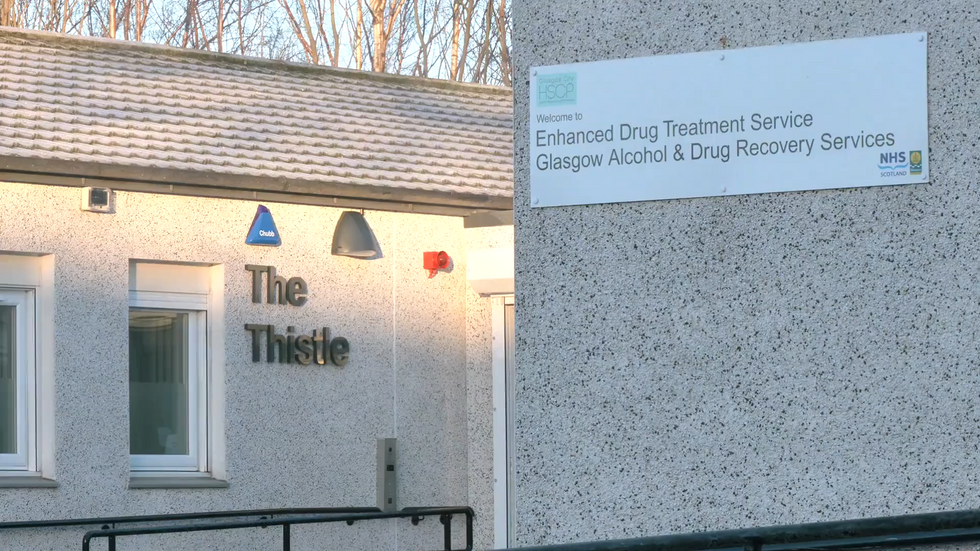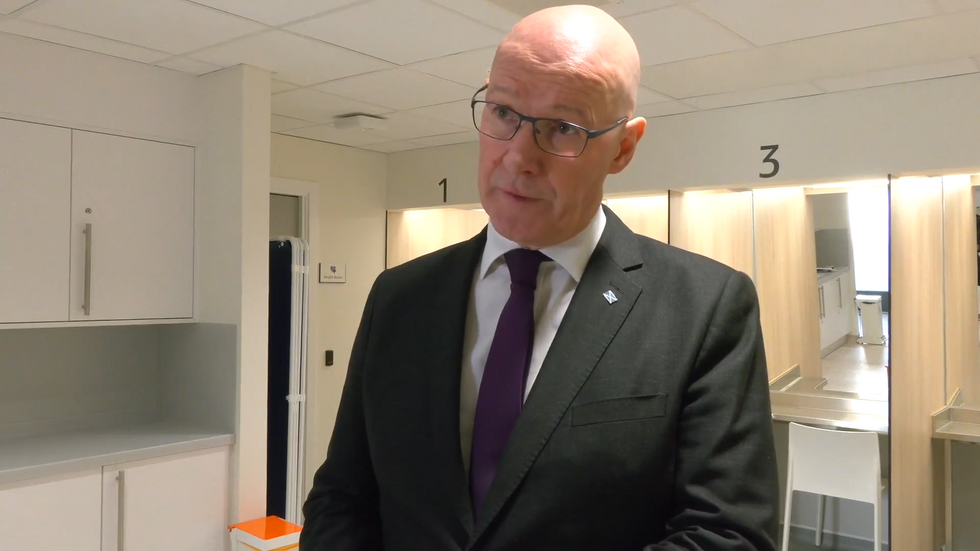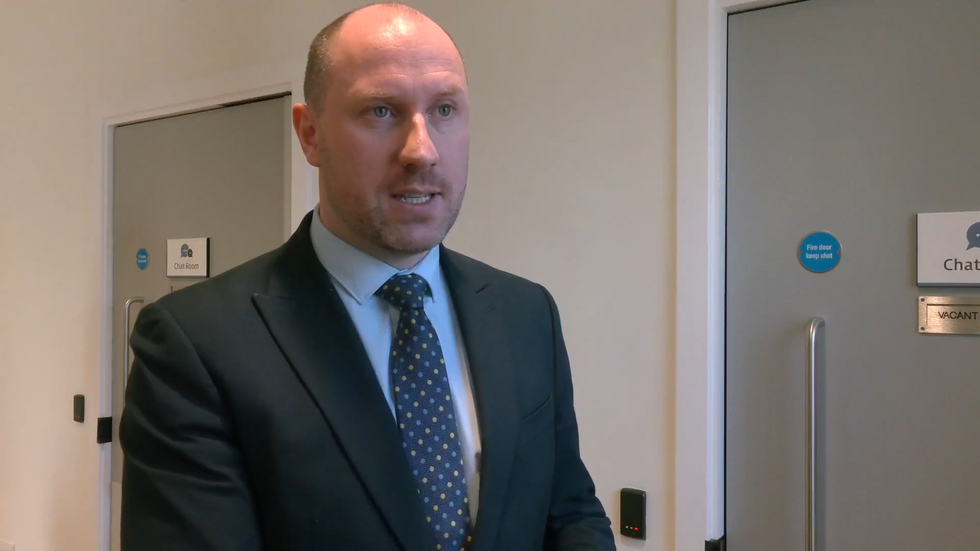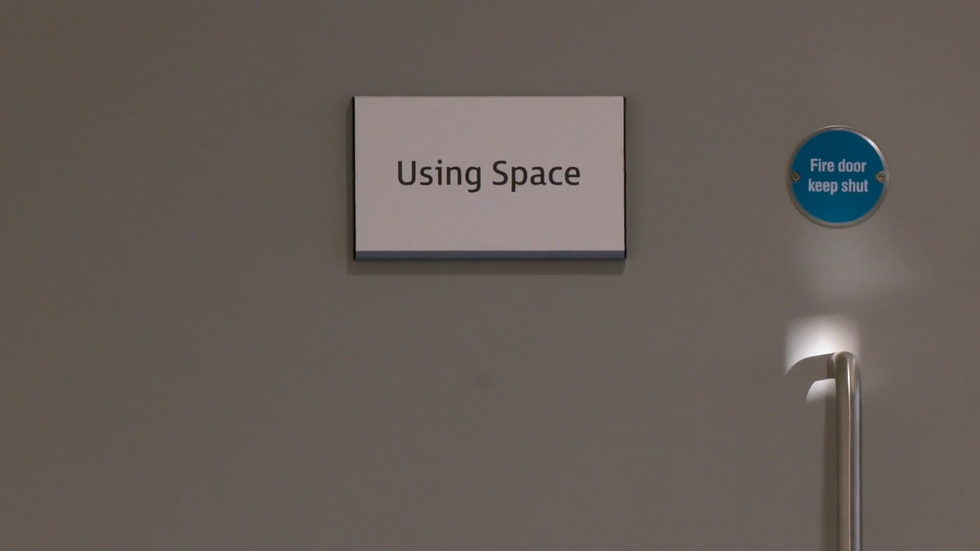Tony McGuire
Guest Reporter
The UK’s first safe drug consumption facility (SDCF), The Thistle, has officially opened its doors to illegal drug users in the East End of Glasgow.
The centre received a £7million investment from the Scottish Government over three years after Scotland once again topped the table of drug deaths in Western Europe.
From 9am to 9pm, 365 days a year, healthcare staff will supervise illegal drug use in a clean and hygienic environment and monitor their condition afterwards, available should any service user take an overdose.
The Thistle Centre in Hunter Street, Glasgow will offer a range of support services to assist users should they wish to get away from their drug dependency.

However, the centre does not supply users with drugs - they must bring their own - and staff are unable to test drugs brought into the centre.
Lord Advocate, Dorothy Bain KC, has made her position clear that prosecuting service users in possession of illegal substances wouldn’t be in the public interest and despite some concern in the local community, the UK Government has given assurances it “will not interfere with the independence of the Lord Advocate” in regards to the pilot.
Service users will occupy one of the eight booths and be supplied clean needles if necessary, in addition to the offer of support and counselling, which First Minister John Swinney hopes will guide users away from dependency on drugs with multifaceted support.
Speaking to GB News, Swinney said he was “confident” The Thistle would play a role in tackling Scotland’s shameful drug death statistics.
LATEST DEVELOPMENTS:

“I’m confident this will be an important contribution towards addressing the situation that we face in Scotland,” he said, “and providing important support to try to reduce the number of drug deaths within Scotland.
“I hope that the facility will be used and that people who come here will then be able to get on a path to recovery, which is the best outcome we can hope for out of a facility of this type.”
Health Secretary Neil Gray was equally optimistic about the outlook for service users at The Thistle, with particular emphasis on returning to them a sense of dignity.
“My hope for this facility is that it will save lives,” he said, “that it will reduce harm and continue to reduce the stigma with drug use and give people that have a drug dependency another avenue into feeling a sense of dignity.”

There were 1,172 illegal drug-related deaths in Scotland in 2023 - a 12 per cent increase on the previous year and proportionately three times higher than in England and Wales.
It’s a destructive trend that consecutive Scottish and UK Governments have tried and failed to tackle.
Now the hope is that The Thistle - a joint partnership with NHS Greater Glasgow & Clyde and the Glasgow City Health and Social Care Partnership - will play a part in finally reversing a crisis that has seen national drug-related death double in just ten years.
The partnership’s decision to open the East End facility is down to the high concentration of users who use public injection sites in the area.
A recent NHS Scotland report estimated Glasgow has up to 500 users injecting outdoors in plain sight, so by offering willing participants refuge to administer drugs with clean needles under medical supervision, the hope is that the circumstances of safer drug-taking will lead to a fall in the number of drug-related deaths.

Ronnie Hart, from Paisley, was an illegal drug user for more than three decades before entering residential rehab.
Today, he’s a recovery worker with drug and alcohol charity WithYou and was impressed with the work which has gone into creating a “warm and welcoming environment” at the facility.
He said: “People who use drugs in a harmful way often have very chaotic lives. Even if they want to make a change, they do not know where to start.
“The Thistle will be a really important tool for reaching people in Glasgow who really do need support, and sharing advice on how to be as safe and healthy as possible.
“For me, that’s a no-brainer.”
Find Out More...
The centre received a £7million investment from the Scottish Government over three years after Scotland once again topped the table of drug deaths in Western Europe.
From 9am to 9pm, 365 days a year, healthcare staff will supervise illegal drug use in a clean and hygienic environment and monitor their condition afterwards, available should any service user take an overdose.
The Thistle Centre in Hunter Street, Glasgow will offer a range of support services to assist users should they wish to get away from their drug dependency.

However, the centre does not supply users with drugs - they must bring their own - and staff are unable to test drugs brought into the centre.
Lord Advocate, Dorothy Bain KC, has made her position clear that prosecuting service users in possession of illegal substances wouldn’t be in the public interest and despite some concern in the local community, the UK Government has given assurances it “will not interfere with the independence of the Lord Advocate” in regards to the pilot.
Service users will occupy one of the eight booths and be supplied clean needles if necessary, in addition to the offer of support and counselling, which First Minister John Swinney hopes will guide users away from dependency on drugs with multifaceted support.
Speaking to GB News, Swinney said he was “confident” The Thistle would play a role in tackling Scotland’s shameful drug death statistics.
LATEST DEVELOPMENTS:
- 'I'm absolutely appalled': Petition launched against plans to reuse war graves in England and Wales
- Foreign rapist 'unaware sex with sleeping woman is wrong' can't be deported because he's bisexual
- Nicola Sturgeon ends marriage to Peter Murrell as she admits 'we have been separated for some time'

“I’m confident this will be an important contribution towards addressing the situation that we face in Scotland,” he said, “and providing important support to try to reduce the number of drug deaths within Scotland.
“I hope that the facility will be used and that people who come here will then be able to get on a path to recovery, which is the best outcome we can hope for out of a facility of this type.”
Health Secretary Neil Gray was equally optimistic about the outlook for service users at The Thistle, with particular emphasis on returning to them a sense of dignity.
“My hope for this facility is that it will save lives,” he said, “that it will reduce harm and continue to reduce the stigma with drug use and give people that have a drug dependency another avenue into feeling a sense of dignity.”

There were 1,172 illegal drug-related deaths in Scotland in 2023 - a 12 per cent increase on the previous year and proportionately three times higher than in England and Wales.
It’s a destructive trend that consecutive Scottish and UK Governments have tried and failed to tackle.
Now the hope is that The Thistle - a joint partnership with NHS Greater Glasgow & Clyde and the Glasgow City Health and Social Care Partnership - will play a part in finally reversing a crisis that has seen national drug-related death double in just ten years.
The partnership’s decision to open the East End facility is down to the high concentration of users who use public injection sites in the area.
A recent NHS Scotland report estimated Glasgow has up to 500 users injecting outdoors in plain sight, so by offering willing participants refuge to administer drugs with clean needles under medical supervision, the hope is that the circumstances of safer drug-taking will lead to a fall in the number of drug-related deaths.

Ronnie Hart, from Paisley, was an illegal drug user for more than three decades before entering residential rehab.
Today, he’s a recovery worker with drug and alcohol charity WithYou and was impressed with the work which has gone into creating a “warm and welcoming environment” at the facility.
He said: “People who use drugs in a harmful way often have very chaotic lives. Even if they want to make a change, they do not know where to start.
“The Thistle will be a really important tool for reaching people in Glasgow who really do need support, and sharing advice on how to be as safe and healthy as possible.
“For me, that’s a no-brainer.”
Find Out More...
